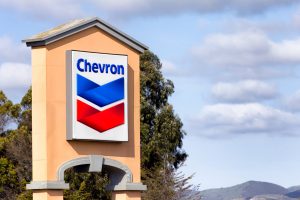Late on Friday, I wrote about the decision of the French energy conglomerate Total Energies to back Western sanctions against Myanmar’s lucrative oil and gas industry, describing it as a “major breakthrough” for activists seeking to choke of the flow of funds to the country’s military junta.
Not long after that article went to press, Total, along with the U.S. energy giant Chevron, went one step further and announced that it was exiting Myanmar entirely, citing the mass human rights abuses and political turmoil that has resulted from last February’s coup.
“The situation of rule of law and human rights in Myanmar has clearly deteriorated over months and despite the civil disobedience movements, the junta has kept power and our analysis is that it’s unfortunately for the long term,” Total said in a statement.
Since the coup, Total and Chevron had come under increasing pressure over their involvement in the offshore Yadana gas field, and the pipeline company MGTC that transports the gas to western Thailand. Oil and gas are by far Myanmar’s largest source of foreign income, and the military’s bloody crackdowns have prompted renewed calls from activist groups and the anti-coup resistance for Western countries to cut off this key source of income.
But while Western nations have imposed a raft of sanctions on the Myanmar military and enterprises linked to it since the coup, they have not yet placed sanctions on the state-owned Myanma Oil and Gas Enterprise (MOGE), which collects revenues on behalf of the government. MOGE is also a partner in the Yadana gas field, in addition to Thailand’s PTT Exploration & Production, and according to a Myanmar government forecast, was expected to earn $1.5 billion from offshore and pipeline projects in 2021-22.
In its statement, Total said it would withdraw from the Yadana project “both as operator and as shareholder, without any financial compensation for TotalEnergies” and hand the operations over to its joint venture partners. Total said it expected its departure to be finalized within six months. A Chevron spokesperson did not give a timeframe, but promised a “planned and orderly transition that will lead to an exit from the country.”
The withdrawal makes the two oil majors just the latest foreign companies to jettison their operations in Myanmar, since the coup ended the Myanmar military’s decade-long experiment in managed democracy and tipped the country into political turmoil.
Over the past year, both have resisted calls to withdraw from the country. Total argued that it should maintain the operation of the Yadana gas field pointing out that it provided crucial power supplies to Myanmar’s largest city, Yangon, and swathes of western Thailand. Chevron was more forthright in its opposition, reportedly dispatching lobbyists to ensure that the U.S. did not sanction Myanmar’s oil and gas industry. Both firms expressed concerns about the safety of their staff in Myanmar.
The withdrawal of Total and Chevron likely reflects an assessment that their stakes in the Yadana project were simply not worth the harm and reputational damage, especially given the fact that the gas field is reportedly nearing the end of its productive life.
As some have observed, the exit of Total is particularly symbolic: here was a firm that has been operating in Myanmar since the 1990s, and successfully resisted years of calls from activists and democracy campaigners to withdraw from the country. The fact that it now sees the situation as basically irredeemable is a remarkable sign of the depths to which Myanmar’s international reputation has plunged over the past year, and the ferocity of the popular resistance that the coup has elicited.
It is also possible that Total and Chevron got wind of the impending imposition of U.S. and European sanctions on MOGE, perhaps timed to the anniversary of the coup on February 1, and decided to get out ahead of the decision.
Whatever the exact story, attention now turns to the particulars of these firms’ withdrawal. While Total has pledged to walk away without seeking compensation, it is unclear exactly how Chevron’s “planned and orderly transition” will look like. While applauding the U.S. firm’s withdrawal from Myanmar, something that it has sought for years, Burma Campaign UK said that the firm “must commit that they will not sell to another operator or facilitate a handover to a new operator.”













